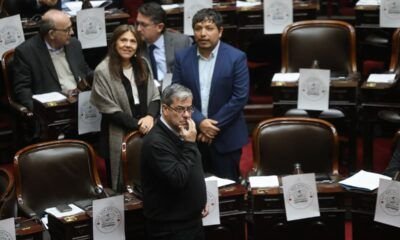INTERNACIONAL
Netanyahu and Trump to meet in DC as Gaza’s fate without Hamas is debated
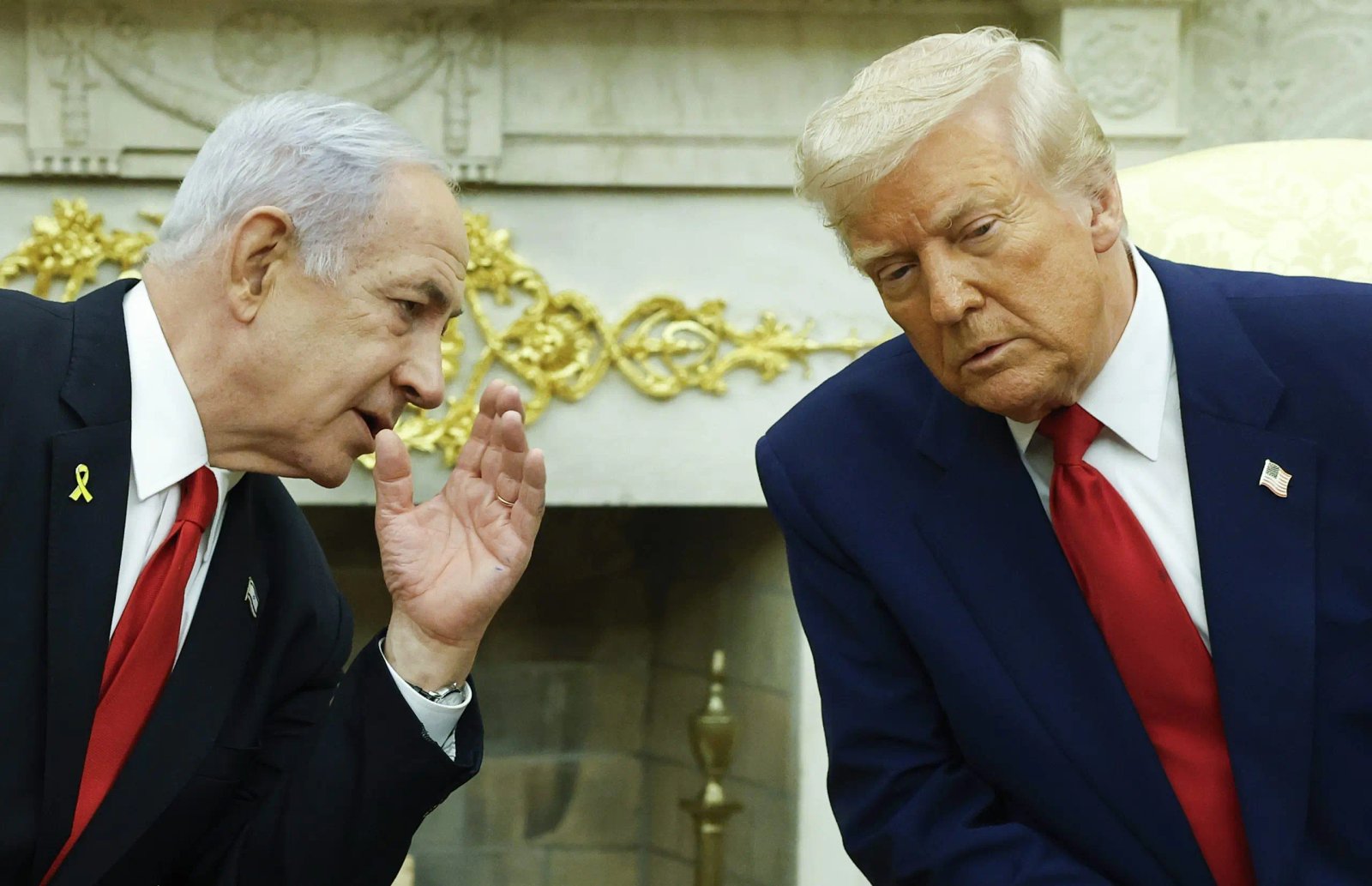
NEWYou can now listen to Fox News articles!
President Donald Trump and Israeli Prime Minister Benjamin Netanyahu are set to meet at the White House on Monday. One of the most difficult questions on the table is what Gaza might look like without Hamas.
Experts tell Fox News Digital that while the need for an alternative is clear, almost every proposed solution comes with serious structural, political and security limitations.
John Hannah, a senior fellow at the Jewish Institute for National Security of America (JINSA) and veteran of both Republican and Democratic administrations, said building an alternative to Hamas must happen in parallel with dismantling it.
THE HISTORY OF GAZA AMID TRUMP’S PLAN TO REBUILD ENCLAVE
Hamas terrorists emerge from the shadows as they surround Red Cross vehicles. (TPS-IL)
«Part of how you win is by showing there’s a viable alternative,» Hannah said. «People need to see there’s a future beyond Hamas»
That future, experts believe, lies in a non-Hamas technocratic government – comprised of Palestinians unaffiliated with either Hamas or the PLO – backed by a coalition of key Arab states, including Saudi Arabia, Egypt, Jordan and the UAE.
«While a new administration in Gaza should be independent, some symbolic link to the Palestinian Authority could enhance its legitimacy with the Arabs. Perhaps Ramallah could serve as a pass-through for paying salaries. But the PA won’t call the shots,» Hannah said.
«The default right now, if Israel ends up leaving Gaza, is Hamas,» said Ghaith al-Omari, senior fellow at the Washington Institute for Near East Policy. «There is no one on the ground who can challenge them. And there is no Arab involvement without the defeat of Hamas. Not just a ceasefire – actual disarmament.»
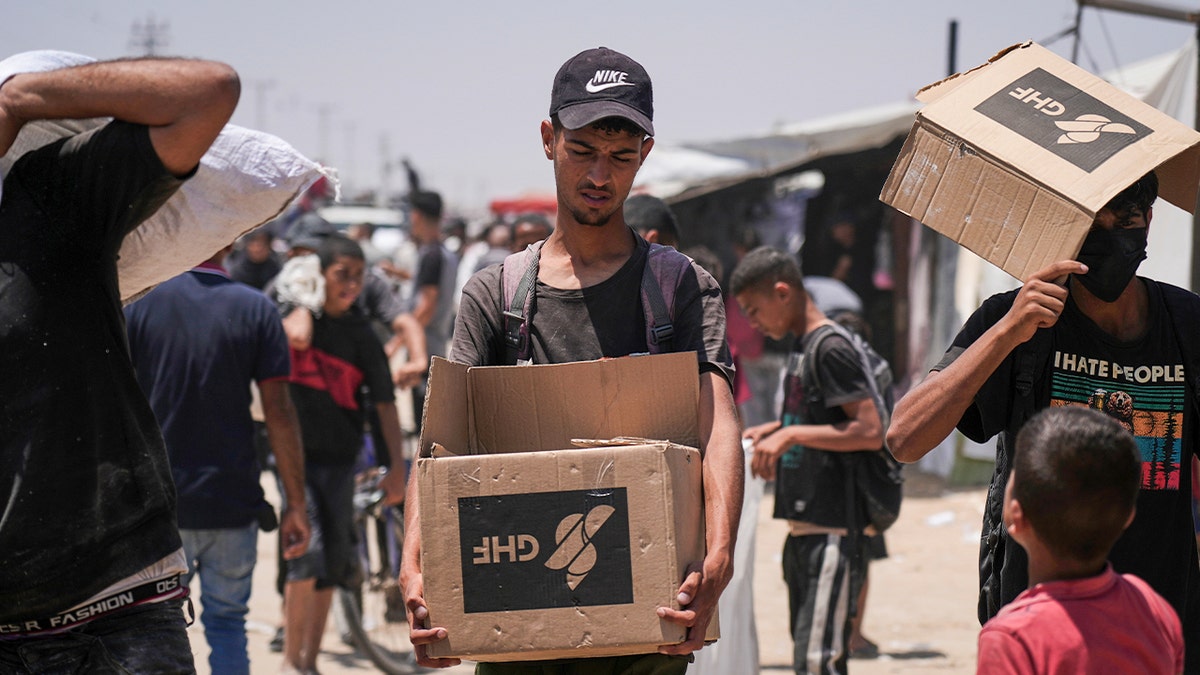
Palestinians carry bags and boxes containing food and humanitarian aid packages delivered by the Gaza Humanitarian Foundation, a U.S.-backed organization, in Rafah, southern Gaza Strip, June 16, 2025. (AP Photo/Abdel Kareem Hana)
At best, said al-Omari who served as the former executive director of the American Task Force on Palestine, the PA might offer a «kosher stamp» to satisfy Arab states, which have made clear they will only intervene in Gaza under a Palestinian national umbrella.
TRUMP PRESSURES ISRAEL TO END GAZA CONFLICT AS HE EYES ABRAHAM ACCORDS EXPANSION
«Without that symbolic PA invitation, Egypt and others won’t come in,» said al-Omari. «But they still need a political framework – some commitment to a two-state solution. Without that, they have absolutely no incentive to play a role in Gaza.»
Securing Israeli approval for any new Gaza administration is another major hurdle. An Israeli security official told Fox News Digital that any deal would need to include guarantees that Israel retains counterterrorism access to prevent Hamas from reemerging.
«Something like what exists in the West Bank – buffer zones, perimeter security, and the right of the IDF or Shin Bet to act on intelligence when needed,» Hannah said.

IDF forces operating in Rafah, in the Gaza Strip. (IDF Spokesman’s Office)
That framework, he noted, would require intensive American-led diplomacy with sustained presence and coordination.
«I can’t see anyone else but the United States doing it – there are too many inner-Arab rivalries,» Hannah said, «No other actor has the relationships, resources or trust required to bridge the deep divides between Israel, Arab states and international players. Everyone’s going to want the U.S. at the center of this. And there’s no doubt President Trump wants to solve it.»
«Qatar is the elephant in the room,» said Hannah, «They bring a lot of much-needed money, but they’ve had a deeply problematic relationship with Hamas. If they want a seat at the table, it has to be with strict conditions – money flowing through trusted, externally controlled channels. But they can’t be a key player in this effort.»
The United Nations, meanwhile, is largely out. «UNRWA’s days are over,» said Hannah. «They can’t run education or the economy in Gaza anymore. At most, the U.N. might endorse a U.S.-Arab-Israeli plan with a Security Council resolution – but they won’t play an operational role.»

One piece of footage published by the Israel Defense Force reportedly shows Hamas combatants firing weapons from the entrance to the UNRWA compound. (IDF)
AMERICAN VETERANS ATTACKED, INJURED WHILE DISTRIBUTING AID IN GAZA WITH US-BACKED GROUP
One proposal gaining quiet traction in Israeli and American circles is the idea of empowering local clans to establish self-governing enclaves.
Joseph Braude, president of the Center for Peace Communications, has spoken extensively with activists on the ground and believes this model could mark the beginning of an alternative.
«It may not be realistic to talk about one civil administration managing all of Gaza right now,» Braude said, «But in discrete geographical enclaves within the strip, you can pilot non-Hamas self-rule. Local Gazans patrol internally while the IDF or another force secures the perimeter. «
«There’s a fiber of educated, civically minded individuals in Gaza – from engineers to teachers – who are not Islamists,» he added, «If vetted properly, they can manage administration, education and basic services. But you have to start by identifying who they are and what they actually believe.»
Braude pointed to one such case: Yasser Abu Shabab, a local militia leader. «This is the first anti-Hamas militia to emerge in Gaza in a generation. He’s a local fighter from a Bedouin clan with family ties to Egyptian forces battling ISIS in Sinai. He says he wants to invite civil servants to begin staffing an administration.»
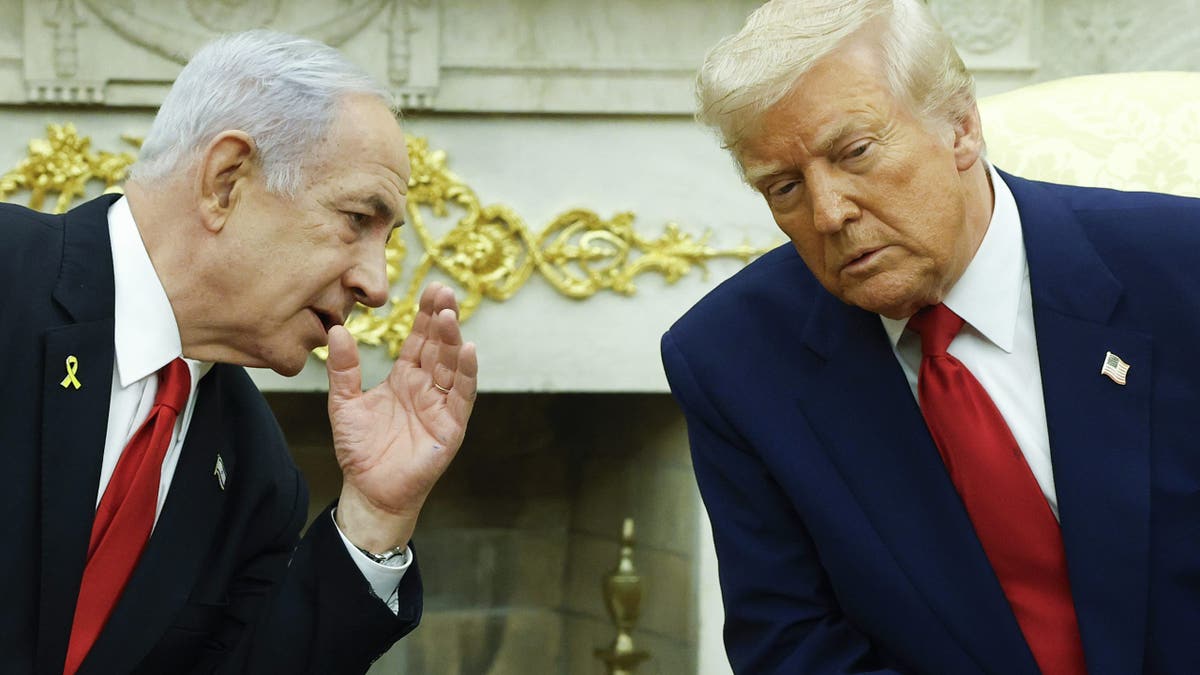
Israeli Prime Minister Benjamin meets with President Donald Trump in the Oval Office of the White House on April 7, 2025. (Kevin Dietsch/Getty Images)
But not everyone agrees this is feasible. «These groups are fragmented, displaced and lack the legitimacy or cohesion to govern,» said al-Omari. «You might use these militias to secure aid deliveries in a specific area, but they can’t form the basis of governance.»
Dr. Michael Milstein, head of the Forum for Palestinian Studies at Tel Aviv University, told Fox News Digital, «Since the war began, several attempts to promote clans as an alternative to Hamas have also failed, like the Doghmush clan, whose leaders were executed by Hamas in early 2024.»
«Even now, figures like Abu Shabab in Rafah or the Barbakh family in Khan Younis are fringe cases,» Milstein added. «Hamas still controls most of the public space. Clans may offer localized solutions, but they are no cohesive or legitimate alternative. Many are openly loyal to Hamas.»
CLICK HERE TO GET THE FOX NEWS APP
«Many say, until Palestinians teach their children to love themselves more than they hate Israel, there will never be peace,» Braude said, «That’s true. But who is actually working to foster a Palestinian leadership [that] does so? That’s the challenge – and the opportunity – right now.»
INTERNACIONAL
Cuomo, Adams trade shots over who should drop out in race against Mamdani for NYC mayor
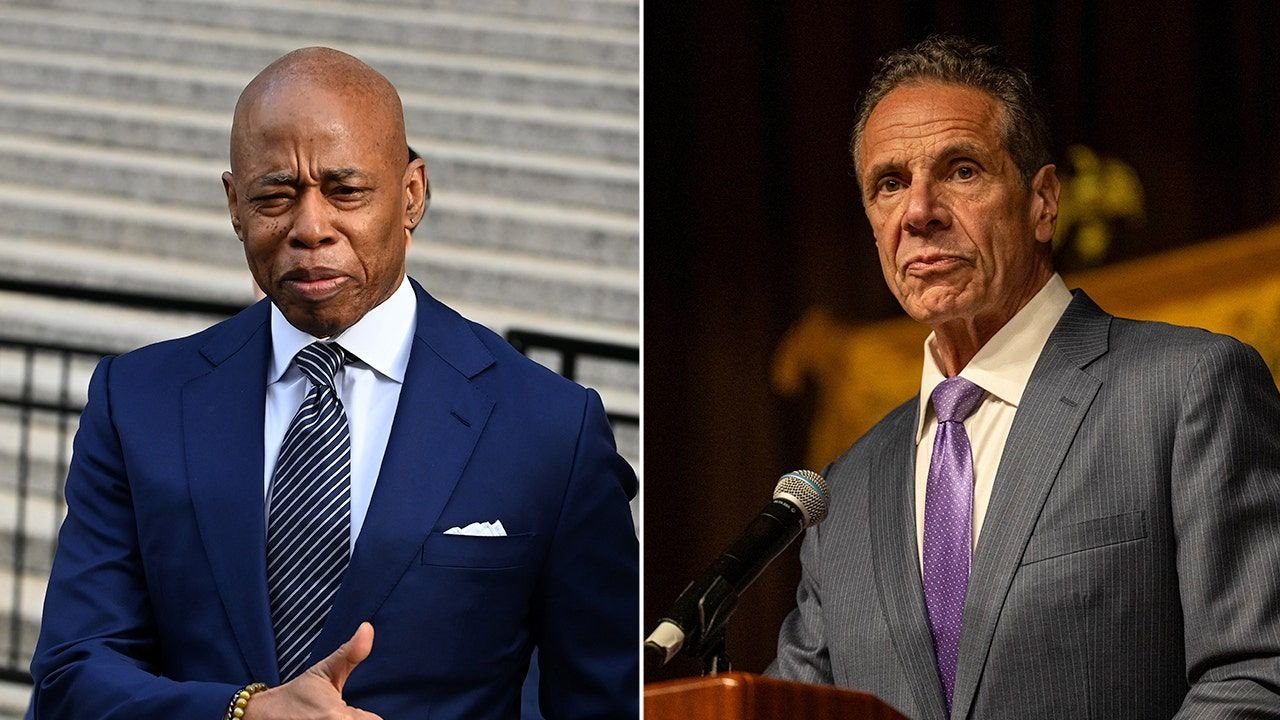
NEWYou can now listen to Fox News articles!
Former New York Gov. Andrew Cuomo and current New York City Mayor Eric Adams are each urging the other to drop their mayoral bids in the 2025 race against Democratic Party nominee Zohran Mamdani.
«I think that everyone should align behind the person who has won one as mayor,» Adams said Monday at a news conference.
Meanwhile, Cuomo’s top advisor argued in a statement that «we do not see any path to victory for Mayor Adams.»
Mamdani, the 33-year-old democratic socialist assemblyman from Queens, two weeks ago topped Cuomo by 12 points to win the Democratic Party mayoral primary. Mamdani instantly became the clear frontrunner in November’s general election in heavily blue New York City, where Democrats outnumber Republicans by roughly a six-to-one margin.
MAMDANI OFFICIALLY WINS PRIMARY, BUT CUOMO STAYING IN BATTLE FOR NEW YORK CITY MAYOR
Democratic mayoral candidate Zohran Mamdani takes the stage at his primary night victory party on Wednesday, June 25, 2025 in New Yor City. (Heather Khalifa/AP Photo)
With his victory over Cuomo and nine other Democratic candidates, Mamdani sent political shockwaves across the country, and took a big step towards becoming the first Muslim mayor of the nation’s most populous city.
Cuomo, the three-term governor who resigned from office in 2021 amid multiple scandals and who was aiming for a political comeback, had been the frontrunner in the mayoral primary race for months until Mamdani closed the gap in the closing weeks of the campaign.
MAMDANI’S POLITICAL EARTHQUAKE ROCKS DEMOCRATS
Mamdani will face off in November against Republican Curtis Sliwa, the founder of the volunteer crime-fighting patrols known as the Guardian Angels. Sliwa is the GOP nominee for a second straight election cycle.
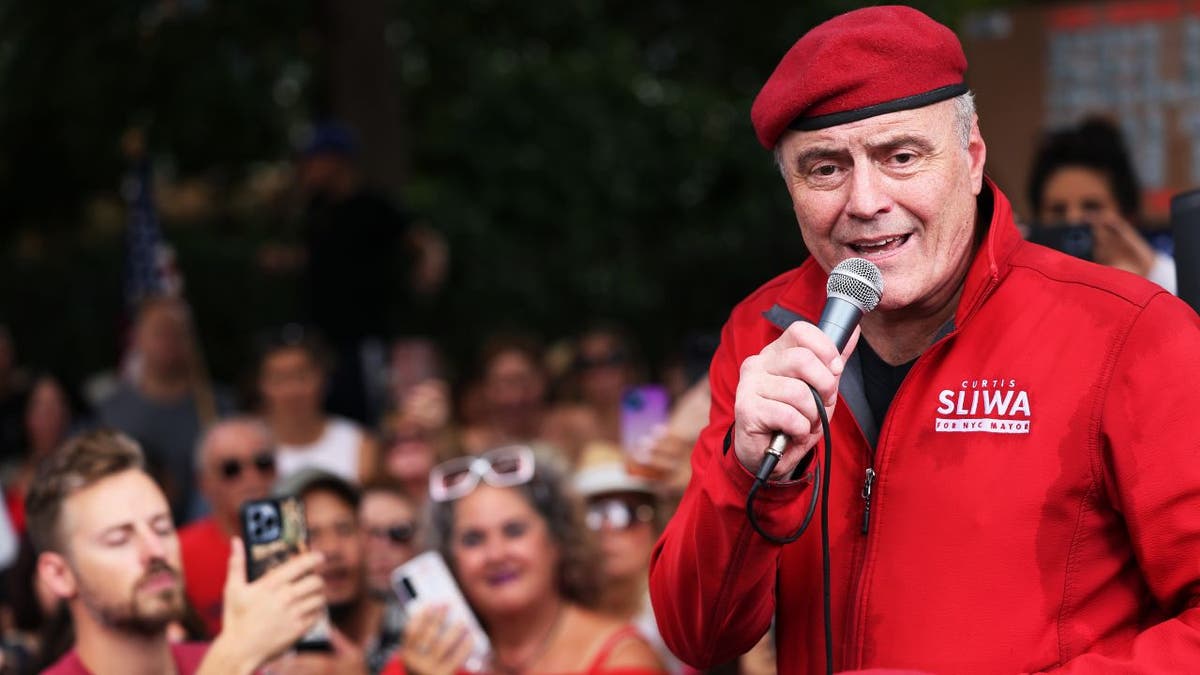
Guardian Angels founder Curtis Sliwa is the Republican nominee for New York City mayor for a second straight election cycle. (Michael M. Santiago/Getty Images)
Jim Walden, a former federal prosecutor running as an independent, is also on the ballot.
Adams, who won election as mayor in 2021 as a Democrat, is running as an independent. The mayor dropped his Democratic re-election bid earlier this year amid sinking poll numbers in the wake of multiple controversies.
While he acknowledged Mamdani’s victory on primary night, Cuomo left the door open for running as an independent candidate, which election rules in New York State permit.
REPUBLICANS USE MAMDANI BOMBSHELL VICTORY OVER CUOMO AS AMMUNITION TO BLAST DEMOCRATS AS EXTREMISTS
And Cuomo recently let a deadline pass for candidates who had already qualified to run as independents to decline that independent ballot line.
«I think Andrew and Curtis should rally behind me. I won as mayor. You know, I’m the only one that’s in this race right now that has ever won as mayor,» Adams said at his news conference.
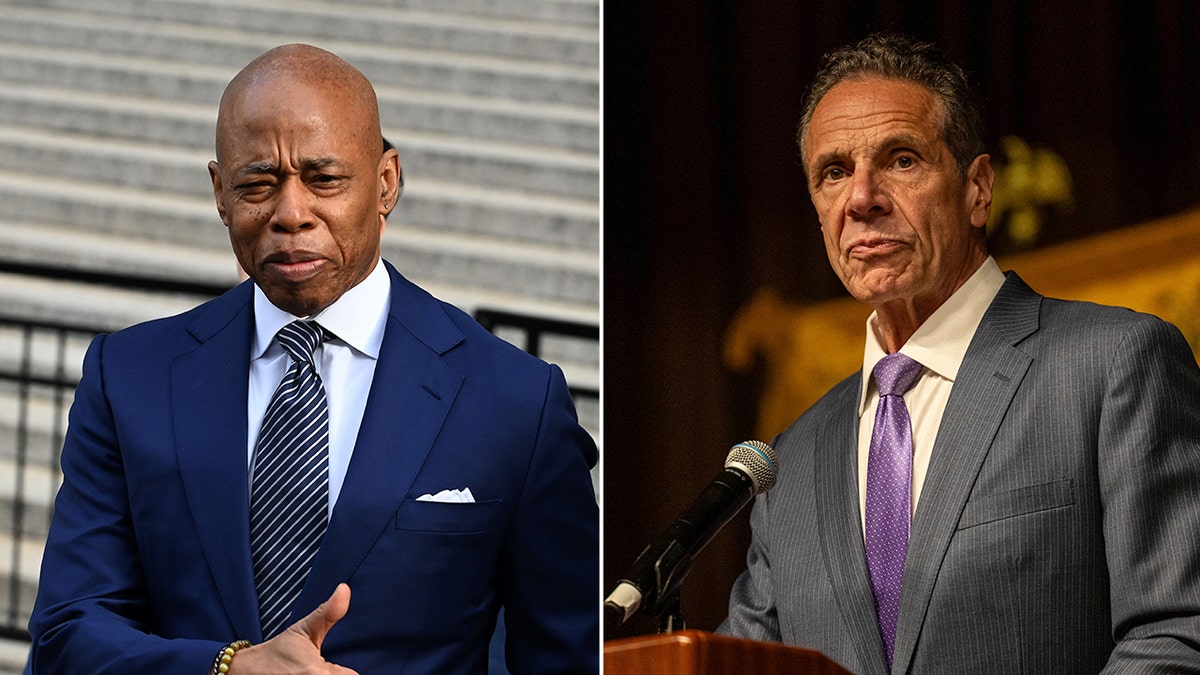
New York City mayor Eric Adams and former New York Gov. Andrew Cuomo have each asked each other to drop out of the New York City mayoral race. (Andrea Renault/Star Max/GC Image; Alex Kent/Getty Images)
And in an interview with CNBC, Adams said that in a recent conversation, the former governor asked him to step aside.
«I said, ‘Andrew, are you that level of arrogant? I’m the sitting mayor!’» Adams said of his conversation with Cuomo. «I’m the sitting mayor of New York City when you just lost to Zohran by 12 points.»
«They heard your message. You lost,» Adams added. «That’s the highest level of arrogance.»
THESE DEMOCRATS HAVEN’T ENDORSED MAMDANI, BUT THEY’RE DEFENDING HIM AGAINST TRUMP
Adams’ poll numbers were sinking even before he was indicted last year on five counts, which accused the mayor of bribery and fraud as part of an alleged «long-running» scheme to personally profit from contacts with foreign officials.
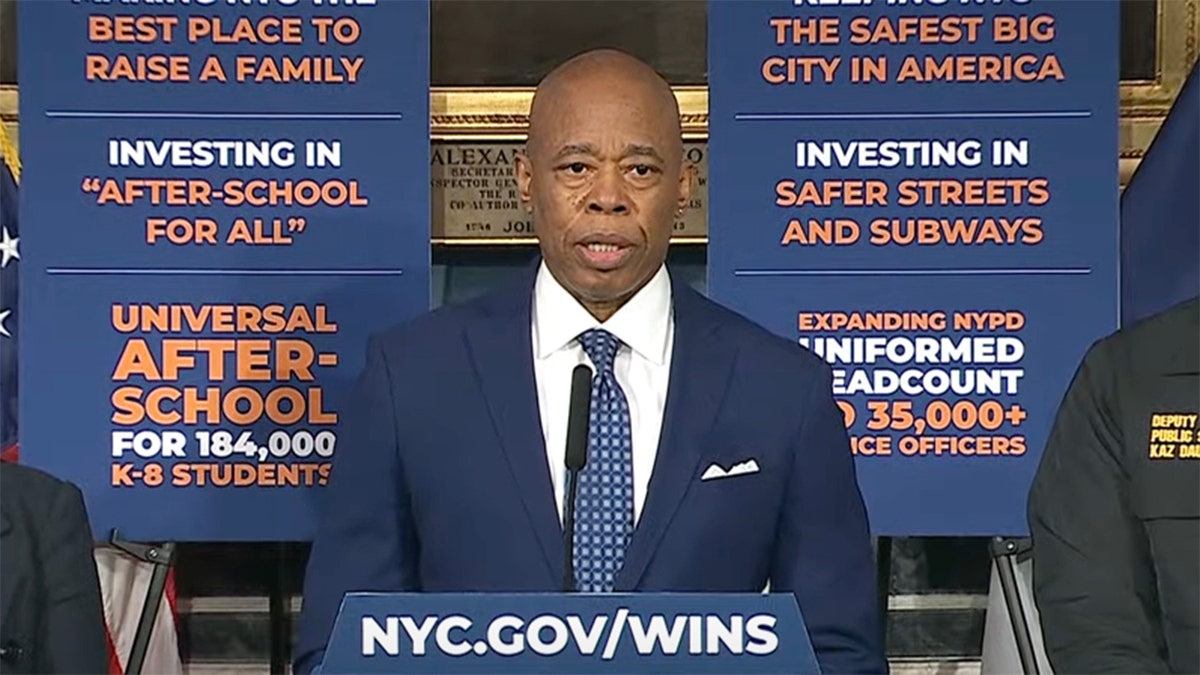
New York City Mayor Eric Adams won election in 2021 as a Democrat but is seeking re-election this year as an independent candidate. (NYC Mayor’s Office)
The mayor made repeated overtures to President Donald Trump, and the Justice Department earlier this year dismissed the corruption charges, so Adams could potentially work with the Trump administration on its illegal immigration crackdown.
«Mayor Adams did not run in the Democratic primary because he knew he was anathema to Democrats and unelectable. Nothing has changed,» top Cuomo advisor Rich Azzopardi charged in a statement on Monday.
And Azzopardi highlighted a proposal made last week by Walden that an independent study should be conducted to see which candidate would be the strongest to take on Mamdani, with the weaker contenders agreeing to drop out.
Azzopardi argued that Walden «correctly points out that if he, Mayor Adams, and Governor Cuomo all run, it all but ensures a socialist victory. Jim proposed a fair independent survey be taken in September to determine whose candidacy and vision for New York is strongest in a one-on-one race in November.»
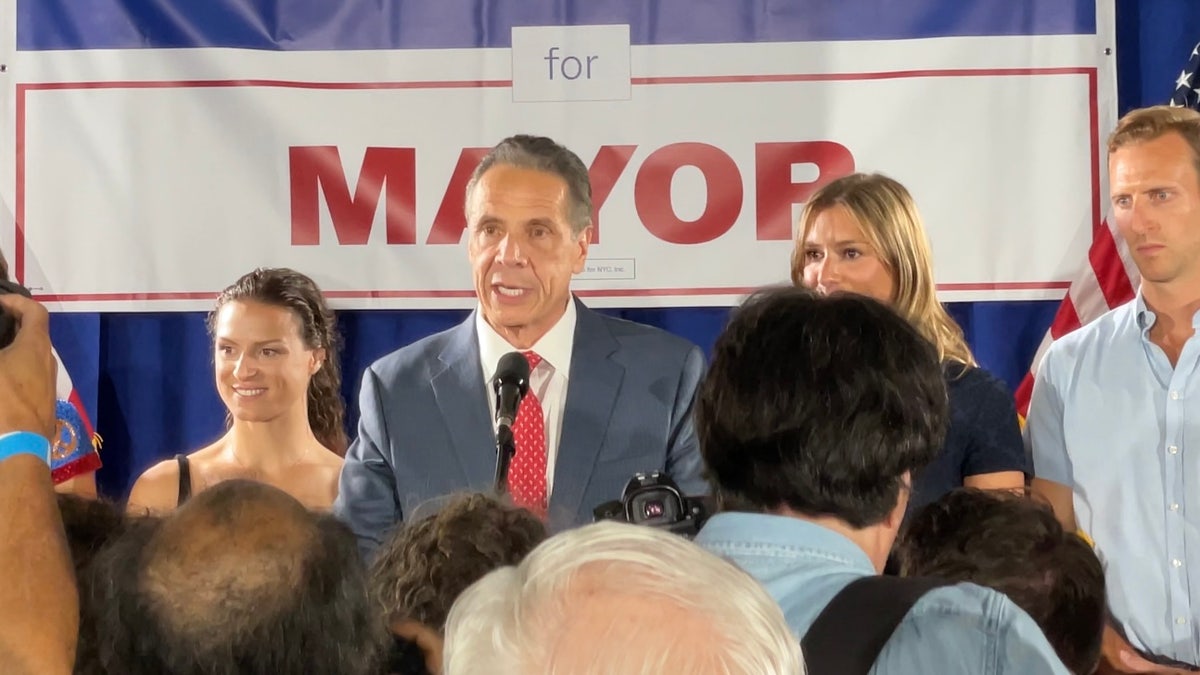
Former New York Gov. Andrew Cuomo, in a speech to supporters, acknowledges that rival Zohran Mamdani ‘won’ the New York City Democratic Party mayoral primary, on June 24, 2025 in New York, N.Y. (Paul Steinhauser/Fox News)
«This is the time to put aside the usual political selfishness and agree to do what is truly best for all New Yorkers,» Azzopardi added. «While we review this proposal, we call on other candidates to do the same.»
Walden on Monday said in an interview on Fox News Radio’s «Fox Across America with Jimmy Failla» that a Mamdani victory in November «would be terrible for the city and would sit us back a whole generation so I proposed a poll in either late September early October.»
«If the candidates agreed to this we would all agree on a poll that would happen and it would be winner take all,» he explained.
Mamdani surged to a primary victory thanks to an energetic campaign that put a major focus on affordability and New York City’s high cost of living.
Endorsements from Rep. Alexandria Ocasio-Cortez — New York City’s most prominent progressive — and Sen. Bernie Sanders of Vermont, the two-time Democratic presidential runner-up, helped Mamdani solidify support on the left.
Mamdani made smart use of social media platforms, including TikTok, as he engaged low-propensity voters. He proposed eliminating fares to ride New York City’s vast bus system, making CUNY (City University of New York) «tuition-free,» freezing rents on municipal housing, offering «free childcare» for children up to age 5, and setting up government-run grocery stores.
And thanks in part to the efforts of a massive grassroots army of volunteers, he rode a wave of support from younger and progressive voters to catapult into first place.
CLICK HERE TO GET THE FOX NEWS APP
Mamdani’s victory has reignited long-standing debates within the Democratic Party between its more moderate and progressive wings, and between outsiders and the establishment.
And it’s reignited the debate over whether the party’s policy, or messaging, was to blame for last November’s election setbacks, when Democrats lost control of the White House and Senate, and failed to win back the House majority.
INTERNACIONAL
Malaparte, el camaleónico escritor que intentó que ser fascista pareciera genial y después todo lo contrario

En los últimos días de Curzio Malaparte, dos fuerzas dominantes de la Italia de posguerra —la Iglesia Católica y el Partido Comunista— se disputaron su lecho de muerte, intentando conseguir una conversión final. Según Maurizio Serra, ambas facciones afirmaron haberlo logrado. Este episodio, descrito en la biografía Malaparte, ilustra la naturaleza contradictoria y teatral de un personaje que, hasta el final, mantuvo en vilo a quienes lo rodeaban.
A partir de este retrato, Serra advierte contra la visión de la “opera buffa” que trivializa el fascismo italiano como una mera comedia, y se empeña en revelar los hechos detrás de un hombre que se puso al servicio de las tendencias políticas más oscuras del siglo XX.
La noticia central de la obra de Serra es la reconstrucción de la vida de Malaparte —nacido Kurt Erich Suckert en 1898, hijo de padre alemán y madre italiana—, quien adoptó su célebre seudónimo en los años 20, en parte por sugerencia de Benito Mussolini, que deseaba que el escritor “italianizara” su identidad. El nombre, un juego con “Bonaparte” al que se antepone el prefijo “Mal-” (malo), resume la artificiosidad que caracterizó su trayectoria. Serra, exmiembro del servicio exterior italiano y autor de libros sobre figuras como Mussolini, Marinetti y d’Annunzio, sostiene que la vida de Malaparte fue un ejemplo de coherencia estilística, no moral.
El fascismo, según Serra, fue un proyecto más imaginativo que racional, impulsado por élites europeas que se presentaban como populistas en su búsqueda de grandeza. Walter Benjamin definió el fenómeno como “la introducción de la estética en la vida política”, una idea que la biografía de Malaparte confirma.

El escritor encarnó las contradicciones de su generación: fue un intelectual anti-intelectual, un hombre viril que usaba maquillaje y cuidaba su peinado, valiente como soldado y corresponsal de guerra, pero cobarde en política y en su vida personal. Aunque despreciaba a los perdedores, sus propios fracasos y proyectos fallidos lo situaron entre ellos.
En su juventud, Malaparte militó en el Partido Republicano Italiano, de tendencia izquierdista, anticlerical y antimonárquica. Se ofreció como voluntario en la Primera Guerra Mundial antes de que Italia entrara en combate y en 1918 luchó en los bosques de Bligny contra el avance alemán, enfrentándose a figuras como el filósofo Ernst Jünger, quien compartía su visión estetizada de la guerra.
Tras la contienda, frecuentó círculos bohemios en Roma, redactó un manifiesto de vanguardia y cultivó la imagen de artista atormentado. Un libro crítico con el alto mando militar le valió notoriedad y lo acercó a los descontentos políticos, aunque pronto abandonó la izquierda para abrazar el nacionalismo.
Durante los años 20, Malaparte se alineó con el ala más radical del fascismo, el “sindicalismo nacional”, que proponía una revolución liderada por la clase obrera nacionalizada contra una élite decadente. Celebró la violencia callejera en sus escritos, aunque no participó en la Marcha sobre Roma de 1922, hecho que luego ocultó y utilizó en su beneficio tras la caída del régimen.

A medida que el gobierno de Mussolini buscaba alianzas con sectores conservadores, Malaparte se distanció de los ultras fascistas con la esperanza de avanzar en una carrera diplomática. Al no lograr sus objetivos, adoptó una actitud burlona hacia la dirigencia fascista, lo que le costó el confinamiento en la isla de Lipari. Más tarde, utilizó este episodio para presentarse como antifascista, pero Serra aclara que, tras su liberación anticipada por clemencia de Mussolini, Malaparte volvió a codearse con la alta sociedad fascista, incluyendo al ministro de Asuntos Exteriores Galeazzo Ciano y su esposa Edda, hija de Mussolini.
La relación de Malaparte con el fascismo fue ambivalente. No figuró entre los ideólogos principales, como Giuseppe Bottai, pero su fama literaria durante el periodo de entreguerras mostró el lado seductor del movimiento y le permitió mantener una relación tensa con Mussolini hasta los años 30.
Serra sostiene que el fascismo no fue solo un culto colectivo al líder, sino también una empresa individual: una adoración narcisista del yo y una oportunidad para jóvenes ambiciosos de provincias insatisfechos con su lugar en la sociedad liberal.
Sus aparentes transformaciones políticas respondieron al oportunismo o al capricho, y aunque abandonó el Partido Fascista cuando fue necesario, “de principio a fin, se encuentra en él una veta fascista que nunca desmintió bajo ningún régimen, en particular un gusto por la fuerza, la única ideología real de un hombre que despreciaba todas las ideologías”, según Serra.

El desprecio de Malaparte por los perdedores fue el hilo conductor de su vida y explica la facilidad con la que abandonó a Mussolini tras su caída para unirse al Reino del Sur, alineado con los Aliados. Su talento literario lo salvó tantas veces como lo metió en problemas. Sobrevivió a las purgas antifascistas del posguerra gracias a la intervención de su amigo, el jefe comunista Palmiro Togliatti, que esperaba aprovechar sus dotes para el partido.
En 1931, Malaparte publicó “Technique du Coup d’État”, donde retrató a Adolf Hitler como un cobarde y un débil, consolidando su imagen de anti-nazi. No obstante, su oposición al nazismo no le impidió que el Tercer Reich le permitiera cubrir el frente oriental y acceder a altos cargos nazis para el periódico italiano Corriere della Sera.
Sus crónicas periodísticas sirvieron de base para Kaputt (1944), una novela que ofrece un testimonio de primera mano sobre la guerra y que figura entre las primeras obras en abordar con seriedad la catástrofe europea. Para entonces, Malaparte ya había cambiado de bando, aunque no sin resentimiento: cinco años después, en La piel (1949), trató la ocupación aliada de Italia con ironía corrosiva.

La obra de Malaparte ha trascendido los márgenes de la extrema derecha. Entre los admiradores de “Kaputt” y “La piel” se cuentan Milan Kundera, Edmund White y Gary Indiana. El Premio Malaparte, que lleva su nombre, ha sido recibido por novelistas como Rachel Cusk y Karl Ove Knausgaard.
El sociólogo Michael Mann definió el fascismo como “un movimiento de la pequeña intelectualidad”, pero Malaparte fue un talento de primer orden tanto en el periodismo como en la ficción, aunque nunca logró canalizar su energía creativa de forma constructiva.
Serra analiza con precisión los vaivenes políticos de Malaparte y su habilidad para alternar la adulación y la sátira. El resultado es el retrato de un camaleón social que falseó su vida, un personaje que hoy resulta reconocible en quienes persiguen el poder y la fama sin atender a principios ni prudencia.
1950,1950s,20th-century,art,author,commentary,contributions,cultural,culture,curzio malaparte,documentation,europe,european,figure,figures,heritage,historical,history,influence,intellectual,intellectuals,italian,italy,italys,legacy,literary,literature,mid-century,photograph,political,portrait,post-war,role,social change,thought,tradition,war,works,world war ii,writer,writers
INTERNACIONAL
Guerra comercial: Donald Trump postergó al 1° de agosto la fecha para imponer aranceles, pero aumentó la presión sobre sus socios
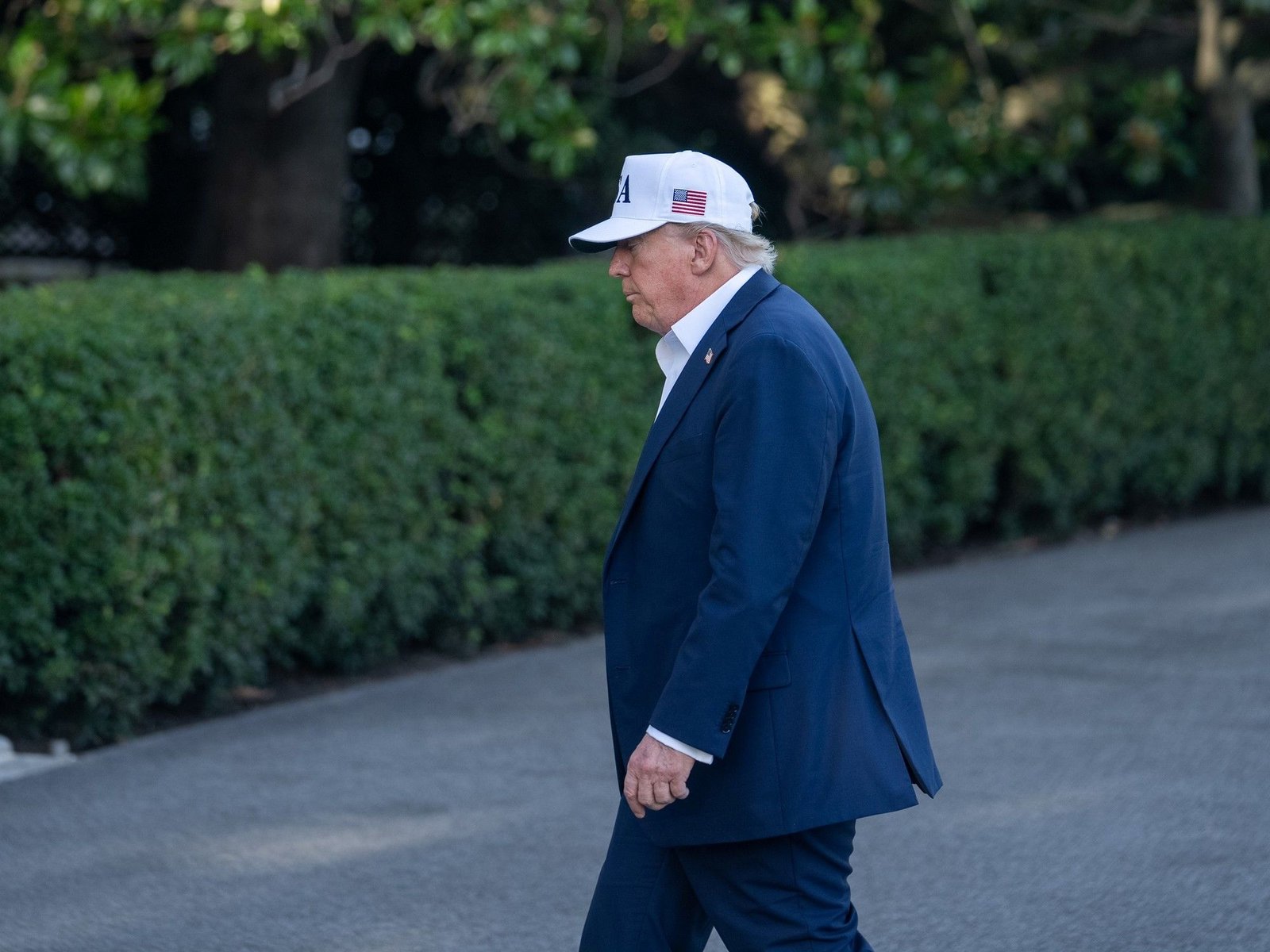
A través de un decreto, el presidente de Estados Unidos, Donald Trump, anunció este lunes que prorrogó hasta el 1° de agosto la fecha límite para el aumento de los aranceles “recíprocos” que había anunciado que aplicaría a todos los países. De todos modos, aumentó la presión a varios de sus socios comerciales con el envío de cartas informándoles una nueva tasa arancelaria, lo que agregó confusión al panorama comercial general.
Se esperaba que los aranceles «recíprocos» entraran en vigor este miércoles, la fecha que Trump había fijado como límite para negociar acuerdos bilaterales. Pero la complejidad de concretar arreglos comerciales con tantos países en simultáneo era una realidad difícil de resolver.
La Argentina, que le había sido aplicado un arancel “recíproco” de 10% al ingreso a Estados Unidos de todos sus productos comerciales, también se encuentra en etapa de negociaciones para poder bajar a 0% en una lista de unos 100 productos.
Los aranceles recíprocos fueron anunciados por Trump en abril y dejó en shock a la comunidad internacional porque incluía un mínimo de 10% a máximos de 70% a todos los socios comerciales de EE.UU. Trump argumenta que los productos estadounidenses enfrentan aranceles “injustos” por parte del resto del mundo, mucho más altos que los que EE.UU. les impone.
A partir de entonces se lanzó una carrera frenética para negociar acuerdos, lo que provocó una enorme incertidumbre en el comercio global. Ahora que Trump prorrogó por decreto el límite al 1 de agosto, los países tendrán más tiempo para llegar a un arreglo con el Departamento de Comercio de EE.UU y la oficina del Representante de Comercio.
Trump anunció también este lunes que envió cartas a 14 países, incluidos importantes socios como Japón y Corea del Sur, que especifican nuevas tasas arancelarias «recíprocas» que son más altas o más bajas en comparación con los niveles anunciados en abril.
El primer ministro de Japón, Shigeru Ishiba, y el presidente de Corea del Sur, Lee Jae-myung, fueron los primeros destinatarios de las cartas de Trump.
Los nuevos aranceles publicados el lunes son sorprendentemente similares a los gravámenes del «Día de la Liberación» que Trump anunció en abril, y comenzarían en 25 por ciento para Japón, Corea del Sur, Malasia, Kazajstán y Túnez; y llegar hasta el 40 por ciento para Myanmar y Laos. Mientras tanto, Sudáfrica, Bosnia, Indonesia, Bangladesh, Serbia, Tailandia y Camboya enfrentarían aranceles de entre el 30 y el 36 por ciento.
En las cartas enviadas a estos países, Trump dijo que está particularmente en desacuerdo con los déficits comerciales que Estados Unidos tiene con ellos, lo que significa que Estados Unidos compra más bienes de allí en comparación con la cantidad que las empresas estadounidenses exportan a esos países.
La secretaria de Prensa de la Casa Blanca, Karoline Leavitt, fue quien anunció que Trump firmaría una orden ejecutiva el lunes para empujar la fecha límite hasta agosto, lo cual es «en el mejor interés del pueblo estadounidense».
También dijo que el teléfono de Trump «no deja de sonar de los líderes mundiales todo el tiempo que le ruegan que llegue a un acuerdo». Sin embargo, solo se han anunciado tres acuerdos en los últimos tres meses.
En las cartas enviadas, Trump amenazó con aumentar los aranceles incluso más que las tasas especificadas si un país tomaba represalias contra Estados Unidos con sus propios aranceles.
Trump dijo que estas tarifas estarían «separadas de todos los aranceles sectoriales», lo que significa, por ejemplo, que el nuevo arancel no se sumará al arancel automotriz actual del 25% o del acero y aluminio, también del 25%, confirmó la Casa Blanca.
La perspectiva de aranceles más altos sobre los bienes podría traducirse en precios más altos para los consumidores estadounidenses. Entre los principales bienes que Estados Unidos importa de Corea del Sur y Japón, por ejemplo, se encuentran automóviles, autopartes, semiconductores, productos farmacéuticos y maquinaria. Trump ha impuesto o amenazado con imponer aranceles específicos de la industria a muchos de estos productos.
Economistas, empresarios y funcionarios extranjeros se esforzaron por interpretar la avalancha de nuevas propuestas arancelarias de este lunes. No estaba claro, dijeron, si el gobierno era serio en sus planes o simplemente esperaba reactivar las conversaciones estancadas, aunque ambos escenarios se sumaron a la creciente incertidumbre económica.
«Existe una enorme amenaza, pero es como si no quisiera apretar el gatillo», dijo Marcus Noland, vicepresidente ejecutivo y director de estudios del Instituto Peterson de Economía Internacional, sobre Trump. «Sigue extendiendo el plazo para darle tiempo a la gente para llegar a un acuerdo. Ya sea que se trate de otro farol o no, ciertamente deja las cosas sin resolver.”
-
POLITICA2 días ago
Para La Libertad Avanza el acuerdo con PRO está encaminado, pero aún hay mutua desconfianza
-
POLITICA3 días ago
El Gobierno avanza con un plan que complica a los gobernadores y pone en riesgo sus alianzas en el Congreso
-
POLITICA2 días ago
🔴URGENTE – La Justicia liberó a tres militantes kirchneristas acusados en la causa por los desmanes en la casa de Espert

















